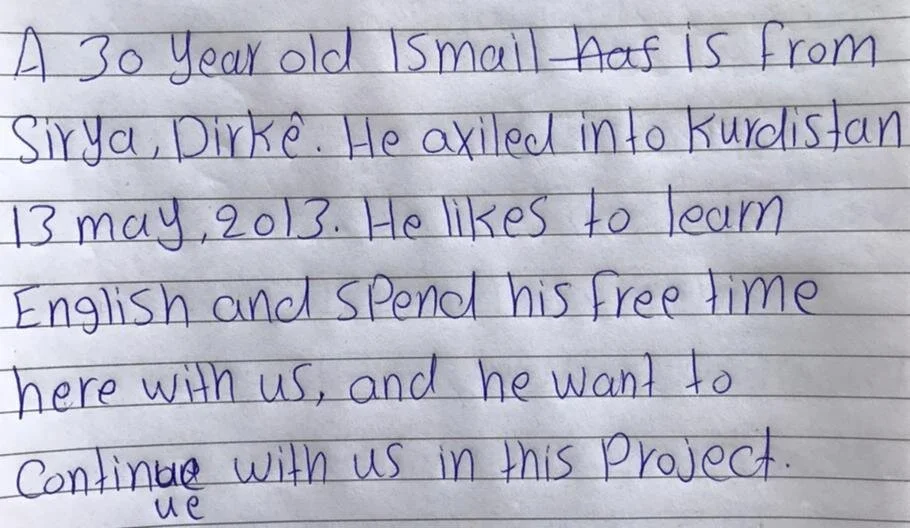“They lost the thread of life” – Healing for men and boys
With mental health proving one of the biggest challenges of our times, we are pleased to have launched a brand new project which aims to help tackle men and boys’ hidden trauma.
In partnership with our friends at Khaima, the project is supporting 30 men and boys at Domiz 2 camp for Syrian refugees, through activities such as individual and group counselling, art therapy and English classes. The programme also incorporates physical recreational activities and community awareness, and is designed to encourage open dialogue and the sharing of past trauma to enable healing.
The three-month project began last week and will run until the end of 2021, and although most Lotus Flower projects focus on displaced women and girls in Kurdistan, we are very keen to support males too, as they have also suffered immensely during so many years of bloodshed and conflict.
Executive Director of Khaima Pfr. Andreas Goerlich says: “Some of these men and boys saw the atrocities committed by IS with their own eyes. Many had to endure being beaten or threatened. Others saw women being subjected to violence, and even men being beheaded. They hid what they went through in order to survive. But this affected their health because the anger, fear and trauma raged in them to this day. They then let out that anger on those they actually love – because they lost the thread of life.
“Now they are ready to be helped. This three-month project focuses on vital psychological health, and expressing their feelings with words. In art lessons, they can do this in a nonverbal way. They will learn about the power of their soul and how to deal with the past, with the help of a psychologist if necessary. We are happy to have joined up with the Lotus Flower and hope the project proves to be a good and healing experience.”
This project is all the more important, since Domiz 2 camp has until now had no services specifically supporting men and boys’ mental health and education. According to local authorities and community representatives who participated in consultation meetings in August, mental health disorders and suicidal tendencies have risen sharply during the pandemic – especially among youths who have little to do.
We hope this work - and future projects – can start to make a real difference to their lives…




